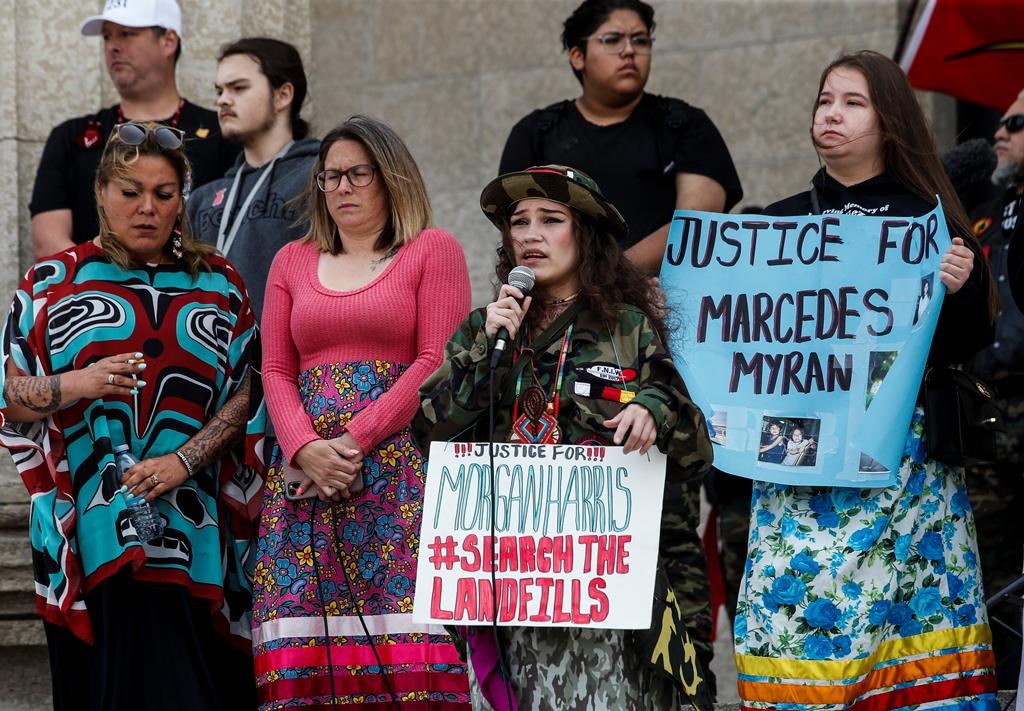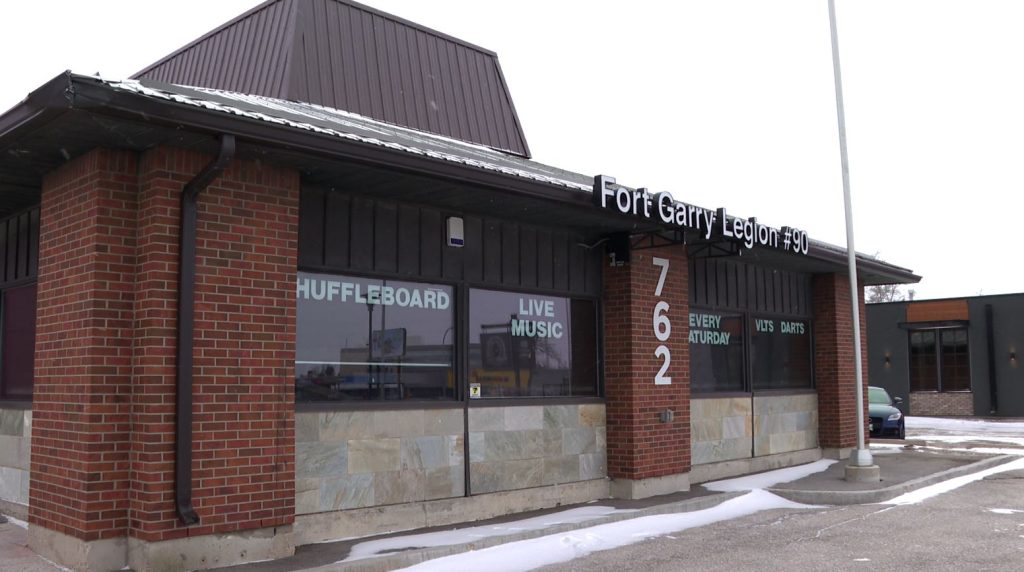Manitoba government says searching landfill for remains of Indigenous women too risky

Posted July 5, 2023 7:12 pm.
Last Updated July 7, 2023 12:24 am.
The Manitoba government appeared to all but shut the door Wednesday on a proposed search for the remains of two slain Indigenous women believed to be in a landfill north of Winnipeg.
Premier Heather Stefanson, after meeting with some relatives of the slain women, cited a recent feasibility study on the proposed search and said it would pose a health risk to workers with no guarantee the remains would be found.
“We understand the desire to leave no stone unturned. However, the search process described in the report is complex, and comes with long-term human health and safety concerns that simply cannot be ignored,” Stefanson said in a written statement.
“Based on the report, we cannot knowingly risk Manitoba workers’ health and safety for a search without a guarantee. As stated in the report, the emotional costs associated with conducting a search and not recovering remains must be considered, as should the emotional costs associated with potential delays and the duration of a search.”
The premier’s office later clarified that the province would not stop a search if the federal government supports one and can provide sufficient safeguards around the risks.
A daughter of one of the slain women expressed anger and disappointment after the meeting.
“I told (Stefanson) she was retraumatizing my family quite frankly, and I found it disrespectful,” Cambria Harris wrote in a social media post.
“Once again a game of political yo-yo, pointing fingers back at the federal government and (Crown-Indigenous Relations) Minister Marc Miller, who has met with my family on numerous occasions.”
Morgan Harris and Marcedes Myran are believed to have been killed last year. Police believe the women’s remains were left in a garbage bin three days apart in early May 2022, and the contents of the dumpster were sent to the Prairie Green Landfill.
Jeremy Skibicki has been charged with first-degree murder in their deaths, as well as the deaths of Rebecca Contois, whose remains were found in another landfill, and an unidentified woman whom Indigenous leaders have named Buffalo Woman. Her remains have not been found.
In a statement, the Assembly of Manitoba Chiefs says the decision “disregards and disrespects the lives of First Nations individuals, families, and nations.” Long Plain First Nation Chief Kyra Wilson says the provincial government is just making excuses.
“For me, this is not a priority for her (Heather Stefanson) and it hasn’t been a priority since day one,” said Wilson.
Wilson says this is not an issue that just pertains to Indigenous people, but to everyone.
“We have two, possibly three women in the landfill and we need to bring them home and we all need to come together to bring them home. I would do that and we would do that for any other person that is needing that support and that is where we are asking for that support.”
Reconciliation advocate Kyle Mason says this decision by the province is extremely disheartening and frustrating. He says this decision is a major blow to reconciliation.
“I have always been taught by my elders and I teach my young son, you don’t always judge people by their words, you judge them by your actions. The province not stepping up to the plate really makes you question their worth when it comes to reconciliation and building respectful relationships with Indigenous communities,” said Mason.
The federal government funded a study that concluded a canvass of the Prairie Green Landfill is feasible.
It warned there are risks due to exposure to toxic chemicals and asbestos. The search could take up to three years and cost $184 million with no guarantee of success. But the report said forgoing a search could be more harmful for the women’s families.
Last month, another relative said the federal government sat down with the families and expressed support for searching the landfill but hung the onus on the province. Miller’s office has said it is still reviewing the study.
– With files from Alex Karpa CityNews, and Steve Lambert, The Canadian Press








